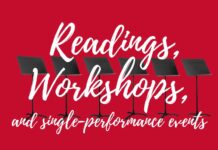A First Look is a free, three-day public festival of staged readings of new plays in a new artistic initiative developed by Ford’s Theatre. Called the Ford’s Theatre Legacy Commissions, the initiative will serve as an incubator for stories about social justice and racial history and explore the varied experiences of underrepresented characters and lesser-known historical figures and their contributions to American life. The commissions will focus on and encourage works by writers and playwrights identifying as Black, Indigenous, and People of Color (BIPOC).
New works by playwrights from the first cohort of writers — Pearl Cleage, Rickerby Hinds, and Dominic Taylor — will be read from February 2 to 4, 2023, at Ford’s (see descriptions of their plays and schedule below).
The Commissions initiative is led by Ford’s Theatre Senior Artistic Advisor Sheldon Epps, Director of Artistic Programming José Carrasquillo, and Ford’s Theatre Legacy Commissions Advisor Sydné Mahone. Debbie Minter Jackson spoke with artistic associates Sheldon Epps and José Carrasquillo on Zoom to find out more about Ford’s Legacy Project.
Debbie Minter Jackson: Thanks so much, both of you, for your work on this incredible project. It’s such a major undertaking and we’re all looking forward to learning how all this got started. You were explaining, Sheldon, that ideas started taking shape at the end of 2020 — of all times! We recall the pandemic lockdown, the social upheaval that reshaped all of our lives that summer with the death of George Floyd. The country was reeling and seething with anger, disgust with new realizations that we were all witnessing together. It was a very painful time in society and the theater world.
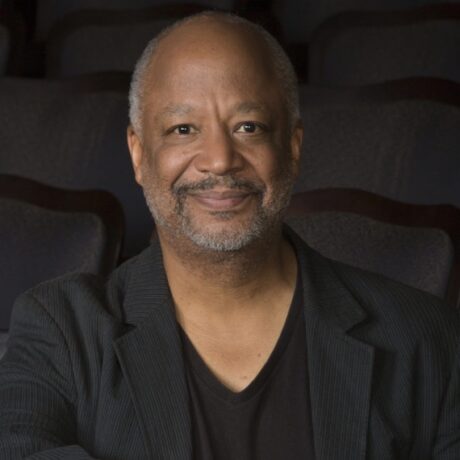
Sheldon Epps: That’s when Ford’s Director Paul R. Tetreault stepped up efforts to focus on Black, Indigenous, and People of Color (BIPOC) writers. Paul was instrumental and determined for Ford’s to be part of the healing solution, not a bystander. The project was announced in June 2021, and while writers were free to choose their major themes and topics, we were particularly interested in hearing about lesser-known heroes and stories.
Ford’s was already committed to diversity efforts, expanding multicultural programming and welcoming in new diverse audiences — in fact, I wouldn’t have been interested in a place that didn’t have that as a priority in its mission. So this First Look Commission is an expansion of what’s been going on at Ford’s, with financial support and commitment from Paul and the Ford’s executive officials. Paul was particularly interested in developing new works.
And José, you’ve been director of artistic programming at Ford’s for several years. What’s your interest in this project?
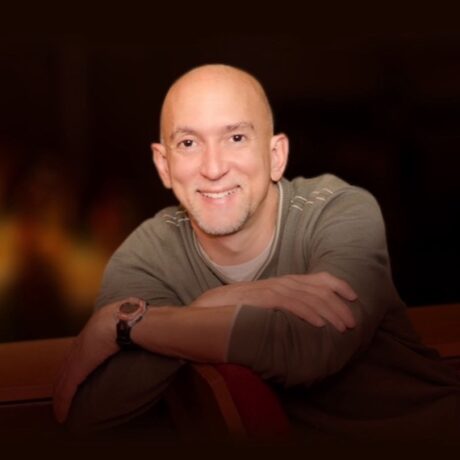
José Carrasquillo: When we started reaching out to playwrights, artists, and writers, there was a wealth of stories we weren’t even aware of. One example: when I saw the movie Hidden Figures, I realized we wouldn’t have gone to space without these brilliant women crunching the numbers for calculations, and wondered why haven’t we been told about these women since grade school? Why was this information just getting out to the mass media all these years later? There’s so much hidden history that we want to make known, and I’m thrilled to be part of that. With the support of Ford’s to explore new areas, we have an incredible opportunity to work with new and seasoned playwrights to hear their voices. The current three that we’re starting with are incredibly talented writers, all so different, each with their own unique style and processes, and the stories coming out are truly exceptional.
Sheldon Epps: When COVID struck, we were wondering if there was going to be any more theater period, like at all. We were all focused on survival and the outlook was bleak and even desperate — locked away from each other in our spaces, communicating through these little digital boxes for months. Coming from that, we felt it was important to make a statement that the theater is going to survive. We will be doing plays again, and it’s time to nurture and sustain playwrights. Now look at the remarkable work that came out of that difficult period. As tough as it was, here we are on the other side of it about to showcase readings of these wonderful new works.
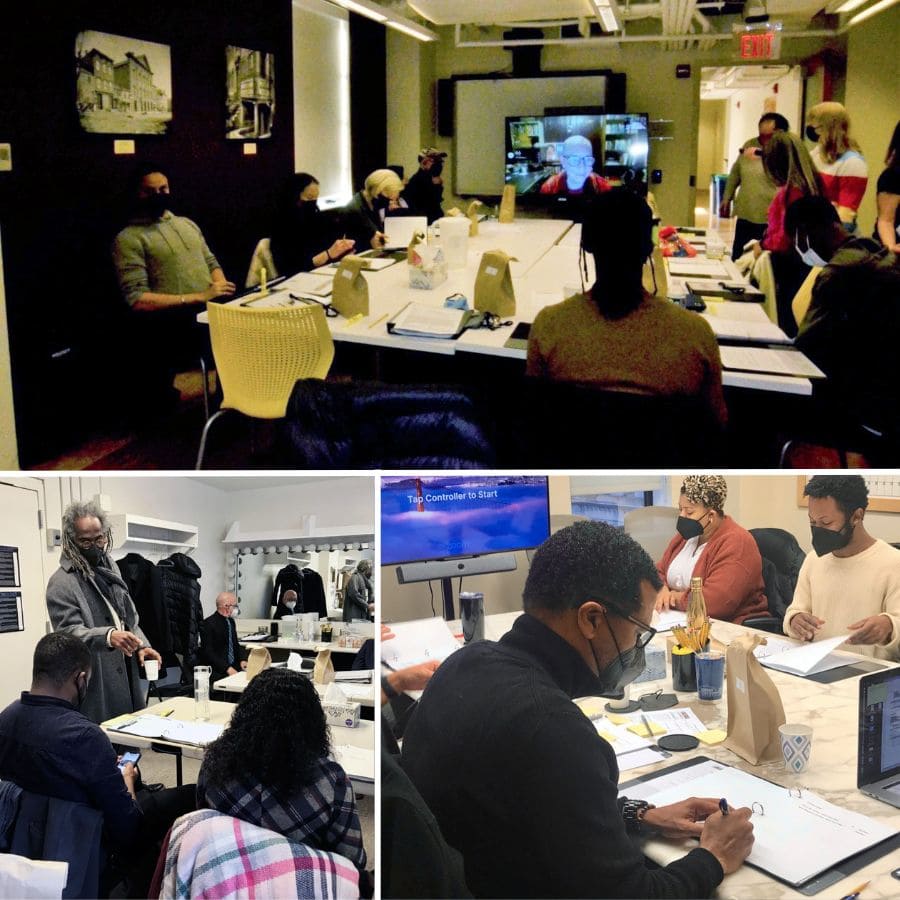
It’s a huge undertaking with numerous playwrights and various artistic advisors and dramaturgs in different locations. How are you able to achieve clarity and accountability so everyone has the same expectations and you’re not stepping over each other?
José Carrasquillo: It helps to have Sheldon at Ford’s, he’s a master director. I’ve been thrilled to see some of his work, and Sydné is one of the most talented dramaturgs in the country. I help orchestrate all these efforts, but it’s really ground table work where everyone contributes and is a part of it. Instead of the usual pressured commission environment of deadlines, schedules, and demands, we help provide a space for the playwrights to feel comfortable to go at their own pace and create. I’m the number one cheerleader for everyone.
Sheldon Epps: José’s being a little bit modest in describing what he does and his contribution. [All laughing.] It’s been a real team effort of everyone on the staff, and José has really been the captain of this team. He’s a superb communicator keeping tabs on all the moving parts so the systems are up and running and we all know where everything stands in the whole process of things.
To help keep things organized, we each got “assigned” a writer, so that each of us could serve as an “ambassador” to ensure that the writers are hearing from only one of us instead of a tangle of different voices. That way each playwright could consider one of us as a “partner” in the development process. I was the “voice” for Pearl Cleage, for example, having worked with her previously. And she was actually ahead of the game in that when we approached her with the possibility of a new work, she quickly responded that she had thoughts for a play that would work perfectly, that she had material that she could work into a dramatic format. That’s what happens when a writer has a passion about something. There seemed to be this synchronicity with the commission opportunity that she was able to use her vast knowledge of Maynard Jackson, the first African American mayor of Atlanta, and put it into dramatic form.
José Carrasquillo: The playwright I’m working with, Rickerby Hinds, wanted to write the story of an enslaved man, Henry “Box” Brown, who actually mailed himself from Virginia to Philadelphia in his quest for freedom in 1849. Hinds is one of the best-known hip-hop artists on the scene, and he embraces that medium to tell theatrical stories. Interestingly, Henry Brown, after successfully escaping slavery and living in Philadelphia in his later years, was a magician. Rickerby sees and presents this as a magic story. I’m very excited about this play and I’m learning a lot about his process to tell the story using all kinds of elements — music, rhythm, magic — to influence how the message is received. For this reading, we’ll be hearing the script for the first time and will focus just on that. For this first round, we’re looking forward to getting feedback from our audiences in receiving the plays as part of the “First Look,” which will be valuable for all of us to hear, especially the playwrights.
Sheldon Epps: Agreed. That’s actually what we were going for with this Commission, to appreciate how writers can approach the work with different styles and expressions of innovative theatricality, music, the works, eventually. Our intention is for the play to have its best possible life in whatever theater is best for that expression, at Ford’s or other suitable spaces. For now, to get to the core essence of developing new work, we’ll focus on the text in its purest form. Production embellishment can always come later, but you have to start with something solid. And it goes without saying that collaboration is always important, it’s at the center of the work. In this art form especially, “It takes a village.”
José Carrasquillo: Definitely. There are so many people behind the scenes to make this kind of endeavor work, and we are thankful for everybody’s efforts. I’m very hopeful and inspired that the Commission will bring other writers along on an ongoing basis to share the many stories out there that have yet to be told.
Sheldon Epps: Our aim is to provide ground-level support for writers to do their best. It’s been important for me to create that kind of positive even nurturing environment to encourage the work. We want the writers to feel supported, honored, and respected throughout this process.
My thanks to you representing so many others who are making First Look a reality. And a special shoutout to Paul Tetreault for having the vision and commitment to initiate and support the project and make all this happen — we hope to hear from him later as the Ford’s Theatre Legacy Commissions get underway. Thank you very much for taking the time to share your insights, and we’re all looking forward to First Look.
The Ford’s Theatre Legacy Commissions will be given staged readings from February 2 to 4, 2023, at Ford’s Theatre, 511 10th Street NW, between E and F Streets NW, Washington, DC. Tickets are free and can be reserved for each reading online.
COVID Safety: Masks are strongly encouraged. See Ford’s full COVID-19 Health and Safety policy here.
Play Descriptions and Times
Something Moving: A Meditation on Maynard by Pearl Cleage
Thursday, February 2, 2023, at 7:30 p.m. and Saturday, February 4, 2023, at 7:30 p.m., followed by a post-show discussion with the director
Directed by Seema Sueko
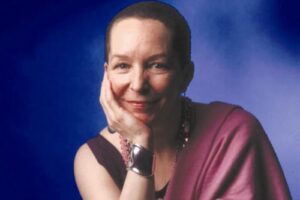
Young and Just by Dominic Taylor
Friday, February 3, 2023, at 7:30 p.m., followed by a post-show discussion with the playwright
Directed by Donald Douglass
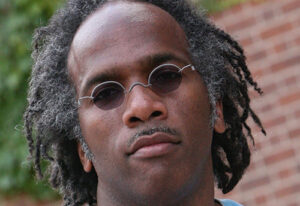
Dominic Taylor’s commission explores the life and work of African American pioneer biologist Dr. Ernest Everett Just and that of his lead researcher Dr. Roger Arliner Young. Taylor’s investigation into the life and scientific achievements of Dr. Young – known as the Black Apollo of Science – led him to Dr. Young’s association with another scientist, Dr. Just. This character-driven account highlights Taylor’s revelatory and insightful storytelling.
Blackbox by Rickerby Hinds
Saturday, February 4, 2023, at 2:30 p.m., followed by a post-show discussion with the playwright
Directed by Thomas F. DeFrantz
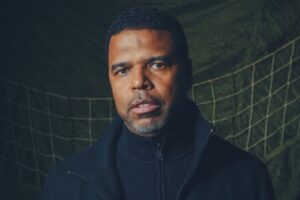
Magic, musicality, and movement abound in Rickerby Hinds’ commission, which explores the remarkable life of abolitionist Henry Box Brown, who was also a magician and an illusionist. In 1849, he arranged to have himself mailed in a wooden crate from Virginia to abolitionist contacts in Philadelphia. Later in his life, Henry Brown became a noted abolitionist speaker and went on to earn a living as a touring magician. Considered a theatre pioneer in merging hip-hop and theatre, Hinds transforms his story into an epic poem with hip-hop influence and magic to highlight the spectacular nature of Brown’s journey to freedom.



